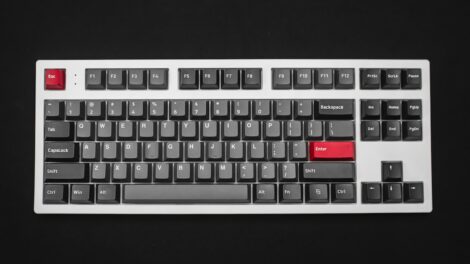Blogging platforms are online software or services that allow individuals or businesses to create and manage their own blogs. These platforms provide users with the tools and features necessary to publish content, customize the design of their blogs, and interact with their audience. Choosing the right blogging platform is crucial for the success of your blog, as it can greatly impact its functionality, appearance, and overall user experience.
When selecting a blogging platform, it is important to consider your specific needs and goals. Different platforms offer different features and capabilities, so it is essential to choose one that aligns with your requirements. Whether you are a beginner blogger or an experienced professional, finding the right platform can make a significant difference in the success of your blog.
Features to Look for in a Blogging Platform
1. Customization options: A good blogging platform should offer a wide range of customization options, allowing you to personalize the design and layout of your blog. This includes the ability to choose from various templates or themes, customize colors and fonts, and add your own logo or branding elements. The more flexibility and control you have over the appearance of your blog, the better you can create a unique and visually appealing website.
2. User-friendliness: Another important feature to look for in a blogging platform is user-friendliness. The platform should be easy to navigate and use, even for those with limited technical skills. It should have an intuitive interface that allows you to easily create and edit blog posts, manage comments, and interact with your audience. A user-friendly platform will save you time and frustration, allowing you to focus on creating great content.
3. SEO capabilities: Search engine optimization (SEO) is crucial for driving organic traffic to your blog. Therefore, it is important to choose a blogging platform that offers built-in SEO features or allows you to easily optimize your content for search engines. This includes the ability to add meta tags, customize URLs, and optimize images. A platform with strong SEO capabilities will help your blog rank higher in search engine results and attract more visitors.
4. Mobile responsiveness: With the increasing use of mobile devices, it is essential for your blog to be mobile responsive. This means that it should automatically adjust its layout and design to fit different screen sizes, ensuring a seamless user experience on smartphones and tablets. A blogging platform that offers mobile responsiveness will help you reach a wider audience and provide a better user experience for your readers.
5. Integration with social media: Social media is an important tool for promoting your blog and reaching a wider audience. Therefore, it is beneficial to choose a blogging platform that integrates well with social media platforms such as Facebook, Twitter, and Instagram. This includes the ability to easily share your blog posts on social media, display social media icons on your blog, and allow readers to share your content on their own social media profiles.
WordPress: The Most Popular Blogging Platform
WordPress is the most popular blogging platform in the world, powering millions of websites and blogs. It is an open-source content management system that offers a wide range of features and customization options. WordPress allows users to create and manage their own blogs with ease, making it suitable for both beginners and experienced bloggers.
One of the main advantages of using WordPress is its flexibility and customization options. It offers thousands of free and premium themes that allow you to create a unique and visually appealing blog. Additionally, WordPress has a vast library of plugins that extend its functionality, allowing you to add features such as contact forms, social media integration, and e-commerce capabilities.
However, WordPress can be overwhelming for beginners due to its extensive features and options. It requires some technical knowledge to set up and customize your blog, although there are many resources available online to help you get started. Despite this learning curve, WordPress remains a popular choice for bloggers due to its versatility and scalability.
Some successful blogs that use WordPress include TechCrunch, The New Yorker, and BBC America.
Blogger: A Beginner-Friendly Option
Blogger is a free blogging platform owned by Google. It is a beginner-friendly option that allows users to create and manage their own blogs with ease. Blogger offers a simple and intuitive interface, making it suitable for those with limited technical skills.
One of the main advantages of using Blogger is its simplicity and ease of use. It requires no technical knowledge to set up and customize your blog, as everything is done through a user-friendly interface. Blogger also provides a range of templates and customization options, allowing you to create a visually appealing blog without any coding.
However, Blogger has limited customization options compared to other platforms. While it offers some basic customization features, it does not have the same level of flexibility as platforms like WordPress. Additionally, Blogger does not offer as many plugins or themes as other platforms, limiting the functionality and design options of your blog.
Despite these limitations, Blogger remains a popular choice for beginner bloggers due to its simplicity and integration with other Google services. Some successful blogs that use Blogger include The Pioneer Woman, Cupcakes and Cashmere, and The Sartorialist.
Wix: A Drag-and-Drop Website Builder
Wix is a popular website builder that also offers blogging capabilities. It is known for its drag-and-drop interface, which allows users to easily create and customize their own websites without any coding. Wix offers a range of templates and design options, making it suitable for both beginners and experienced bloggers.
One of the main advantages of using Wix is its ease of use and intuitive interface. The drag-and-drop editor allows you to easily add and arrange elements on your blog, such as text, images, videos, and social media icons. Wix also offers a wide range of templates and design options, allowing you to create a visually appealing and professional-looking blog.
However, Wix has some limitations when it comes to customization and flexibility. While it offers a range of templates and design options, it does not have the same level of customization as platforms like WordPress. Additionally, Wix does not offer as many plugins or integrations as other platforms, limiting the functionality of your blog.
Despite these limitations, Wix remains a popular choice for bloggers who want a user-friendly and visually appealing website. Some successful blogs that use Wix include The Blonde Salad, The Everygirl, and The Chriselle Factor.
Squarespace: A Professional-Looking Option

Squarespace is a website builder that offers blogging capabilities. It is known for its professional-looking templates and design options, making it suitable for bloggers who want a visually appealing and polished website. Squarespace offers a range of features and customization options, allowing users to create and manage their own blogs with ease.
One of the main advantages of using Squarespace is its design options and templates. It offers a wide range of professionally designed templates that can be easily customized to fit your brand or style. Squarespace also provides a range of customization options, allowing you to personalize the design and layout of your blog.
However, Squarespace has some limitations when it comes to flexibility and functionality. While it offers a range of design options, it does not have the same level of customization as platforms like WordPress. Additionally, Squarespace does not offer as many plugins or integrations as other platforms, limiting the functionality of your blog.
Despite these limitations, Squarespace remains a popular choice for bloggers who want a professional-looking website without the need for coding or technical skills. Some successful blogs that use Squarespace include Cup of Jo, Design*Sponge, and The Daring Gourmet.
Medium: A Platform for Writers
Medium is a blogging platform that focuses on writing and storytelling. It is known for its clean and minimalist design, making it suitable for writers who want to focus on their content. Medium offers a range of features and customization options, allowing users to create and publish their own stories with ease.
One of the main advantages of using Medium is its simplicity and focus on writing. The platform provides a distraction-free writing environment, allowing you to focus on your content without any distractions. Medium also offers a range of formatting options, allowing you to create visually appealing and well-structured articles.
However, Medium has some limitations when it comes to customization and monetization. While it offers some basic customization options, it does not have the same level of flexibility as platforms like WordPress. Additionally, Medium does not allow users to monetize their content directly, although there are opportunities to earn money through the Medium Partner Program.
Despite these limitations, Medium remains a popular choice for writers who want a simple and minimalist platform to share their stories. Some successful blogs that use Medium include The Mission, The Startup, and The Writing Cooperative.
Ghost: A Minimalistic Blogging Platform
Ghost is a minimalistic blogging platform that focuses on simplicity and speed. It is known for its clean and modern design, making it suitable for bloggers who want a distraction-free writing environment. Ghost offers a range of features and customization options, allowing users to create and manage their own blogs with ease.
One of the main advantages of using Ghost is its simplicity and focus on writing. The platform provides a clean and minimalist interface, allowing you to focus on your content without any distractions. Ghost also offers a range of formatting options, allowing you to create visually appealing and well-structured articles.
However, Ghost has some limitations when it comes to customization and functionality. While it offers some basic customization options, it does not have the same level of flexibility as platforms like WordPress. Additionally, Ghost does not offer as many plugins or integrations as other platforms, limiting the functionality of your blog.
Despite these limitations, Ghost remains a popular choice for bloggers who want a minimalistic and fast platform to publish their content. Some successful blogs that use Ghost include The Next Web, Codecademy, and DigitalOcean.
Weebly: A User-Friendly Option
Weebly is a website builder that also offers blogging capabilities. It is known for its user-friendly interface and drag-and-drop editor, making it suitable for beginners and those with limited technical skills. Weebly offers a range of features and customization options, allowing users to create and manage their own blogs with ease.
One of the main advantages of using Weebly is its ease of use and intuitive interface. The drag-and-drop editor allows you to easily add and arrange elements on your blog, such as text, images, videos, and social media icons. Weebly also offers a range of templates and design options, allowing you to create a visually appealing and professional-looking blog.
However, Weebly has some limitations when it comes to customization and flexibility. While it offers a range of templates and design options, it does not have the same level of customization as platforms like WordPress. Additionally, Weebly does not offer as many plugins or integrations as other platforms, limiting the functionality of your blog.
Despite these limitations, Weebly remains a popular choice for bloggers who want a user-friendly and visually appealing website. Some successful blogs that use Weebly include The Penny Hoarder, The Kitchn, and The Pioneer Woman.
Choosing the Best Blogging Platform for Your Needs
When choosing the best blogging platform for your needs, there are several factors to consider:
1. Your goals and requirements: Consider your specific goals and requirements for your blog. Are you looking for a simple platform to share your writing, or do you need advanced customization and functionality? Understanding your goals will help you determine which platform is the best fit for you.
2. Your technical skills: Consider your level of technical skills and comfort with coding. Some platforms, like WordPress, require more technical knowledge to set up and customize, while others, like Blogger or Weebly, are more beginner-friendly.
3. Your budget: Consider your budget for your blog. Some platforms, like WordPress and Blogger, offer free options, while others, like Squarespace and Wix, require a monthly or annual subscription.
4. Your design preferences: Consider your design preferences and the visual appearance you want for your blog. Look for platforms that offer a range of templates and customization options that align with your style.
5. Your future scalability: Consider the scalability of the platform. Will it be able to accommodate your future needs as your blog grows? Look for platforms that offer flexibility and the ability to add new features or integrations as needed.
To determine which platform is right for you, it is recommended to try out different platforms and see which one feels the most comfortable and meets your needs. Many platforms offer free trials or have a free version available, allowing you to test them out before committing.
In conclusion, choosing the right blogging platform is crucial for the success of your blog. It is important to consider factors such as customization options, user-friendliness, SEO capabilities, mobile responsiveness, and integration with social media when selecting a platform. WordPress, Blogger, Wix, Squarespace, Medium, Ghost, and Weebly are all popular blogging platforms that offer different features and customization options. By considering your specific goals and requirements, technical skills, budget, design preferences, and future scalability, you can choose the best platform for your needs and create a successful blog.
FAQs
What is a blogging platform?
A blogging platform is a software or service that allows individuals or organizations to create and publish content on the internet in the form of a blog.
What are the best blogging platforms for beginners?
Some of the best blogging platforms for beginners include WordPress, Blogger, Wix, Squarespace, and Weebly.
What is WordPress?
WordPress is a free and open-source content management system that allows users to create and manage websites and blogs.
What is Blogger?
Blogger is a free blogging platform owned by Google that allows users to create and publish blogs on the internet.
What is Wix?
Wix is a cloud-based website builder that allows users to create websites and blogs using drag-and-drop tools and pre-designed templates.
What is Squarespace?
Squarespace is a website builder and blogging platform that allows users to create and publish websites and blogs using pre-designed templates and drag-and-drop tools.
What is Weebly?
Weebly is a website builder and blogging platform that allows users to create and publish websites and blogs using pre-designed templates and drag-and-drop tools.









Add Comment